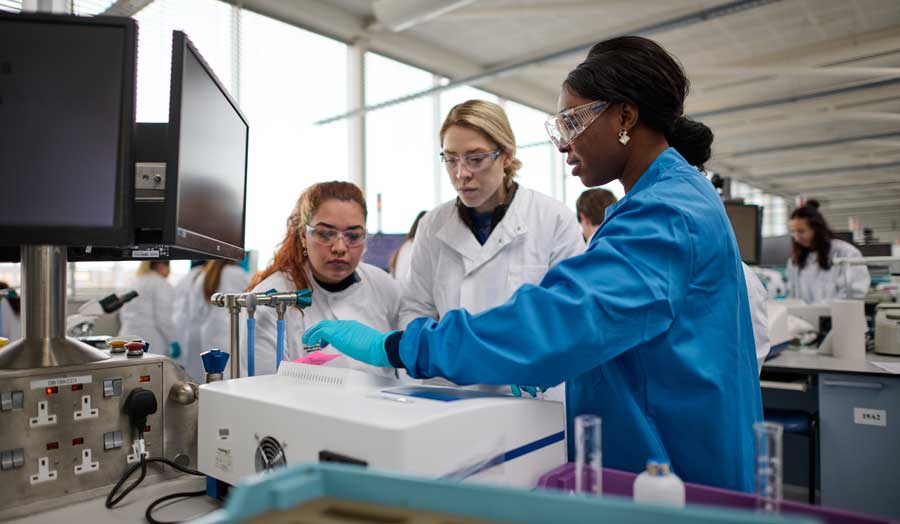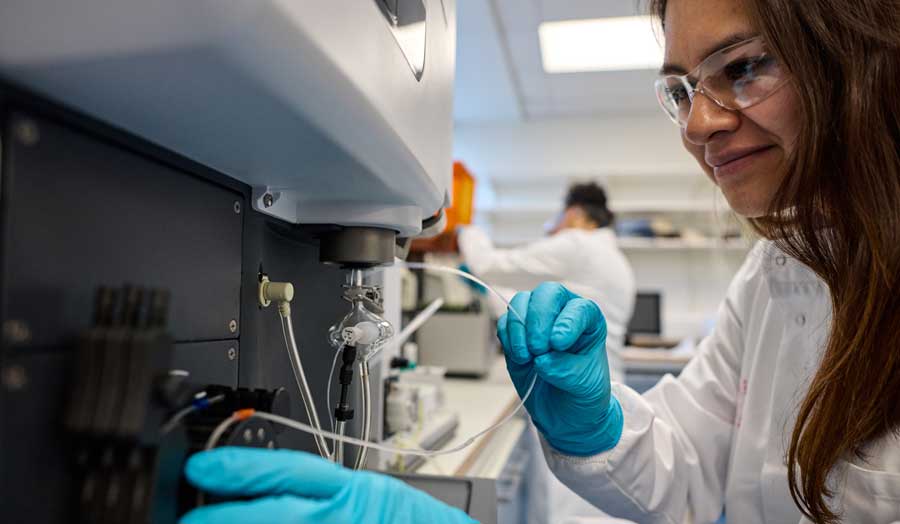Explore our science facilities
When studying a science degree at London Met, you'll have access to our £30 million Science Centre – home to a superlab with 280 individual workstations, as well as state-of-the-art sports science and therapy facilities, dietetics labs – take a look at all of this and more in our video.
Our £30m Science Centre is one of the largest and most advanced science teaching facilities in Europe – it features a superlab, cutting-edge health sciences facilities and more.
Superlab
Our superlab is an impressive space with more than 280 workstations. It allows multiple practical lessons to take place simultaneously, with headphones and computers at each station to allow teachers to speak directly to you as you carry out tasks. This facility will also give you experience of working with technologies that are used in industry settings.
Tissue culture / microbiology laboratories
Discover the next breakthrough for tissue culture with our research and microbiology-based work spaces. Work done on airborne or transferable viruses at the University helped one of our students to discover new information about the Ebola virus, saving many lives as she helped find the services to capture the disease in patients.
Nutritional psychology and food technology laboratories
The University’s nutritional psychology and food technology laboratories allow you to explore the physiological effects of exercise by collecting data and investigating the connections between exercise, health and nutrition. To help you gather the most accurate data available, you’ll have access to specialist equipment including a Cybex machine, Bod Pod, Tanita body scanner and a DEXA (Dual Energy X-ray Absorptiometry) bone densitometer.
Psychophysiological lab
The Science Centre has its own psychophysiological lab, equipped with three different rooms with PCs and specialist BIOPAC physiological monitoring hardware and software.
Environmental chambers and nuclear magnetic resonance room
You can also make use of our environmental chambers for exploring the thermal impacts of exercising and drinking, as well as access our nuclear magnetic resonance room, where you will learn about nuclear magnetic resonance (NMR) spectrometry.
Skills and simulation suite
Within our Science Centre you will also find our skills and simulation suite, used by students on many of our health sciences courses.

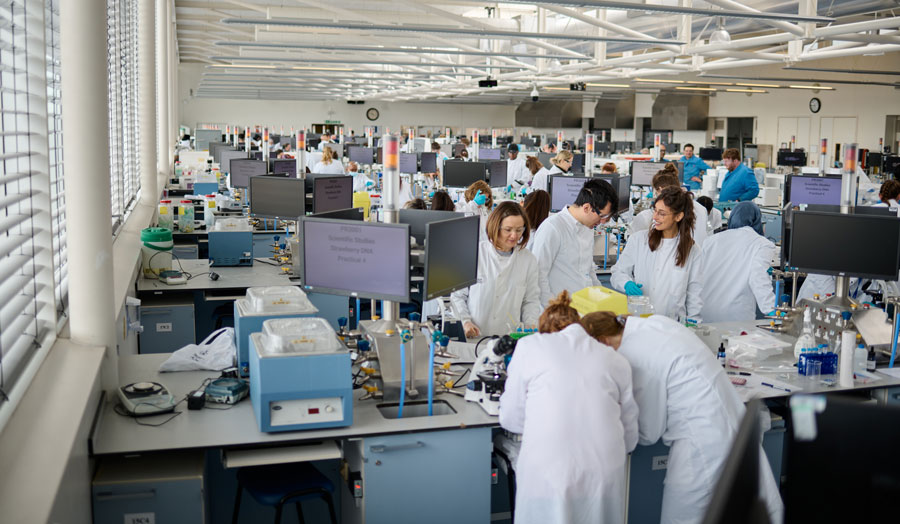
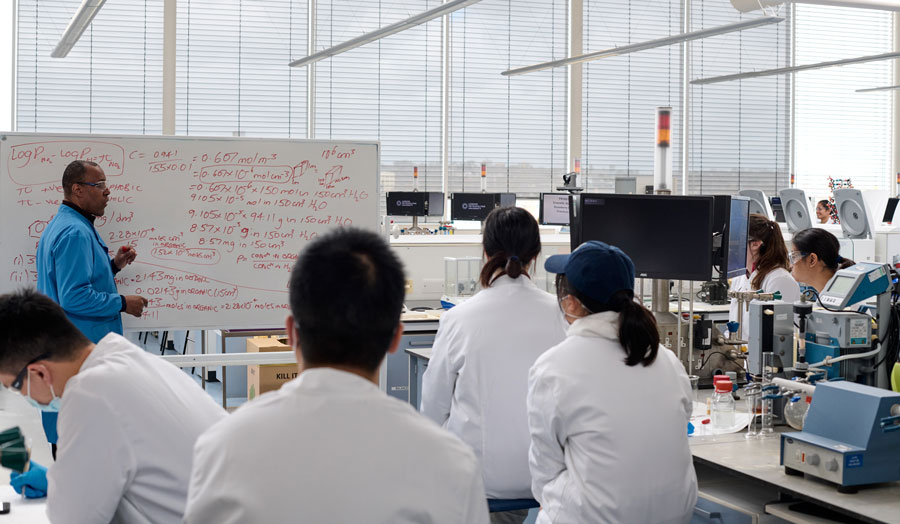
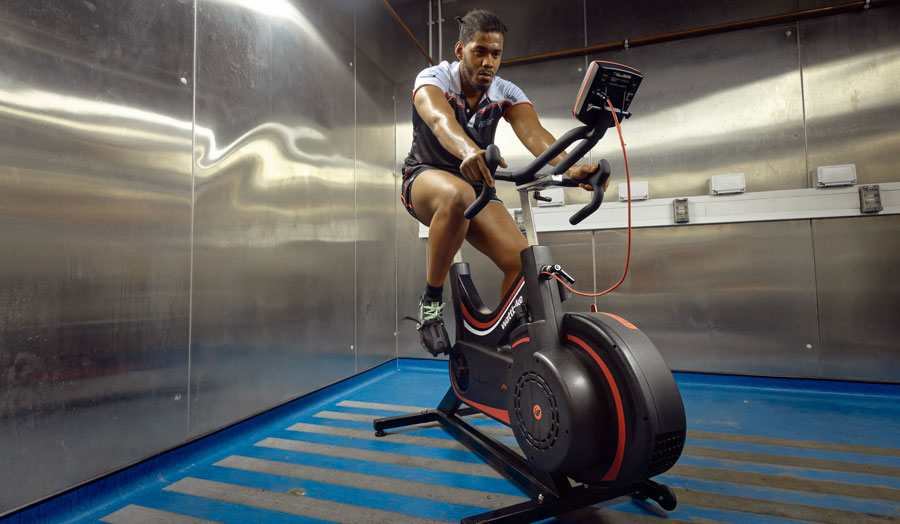
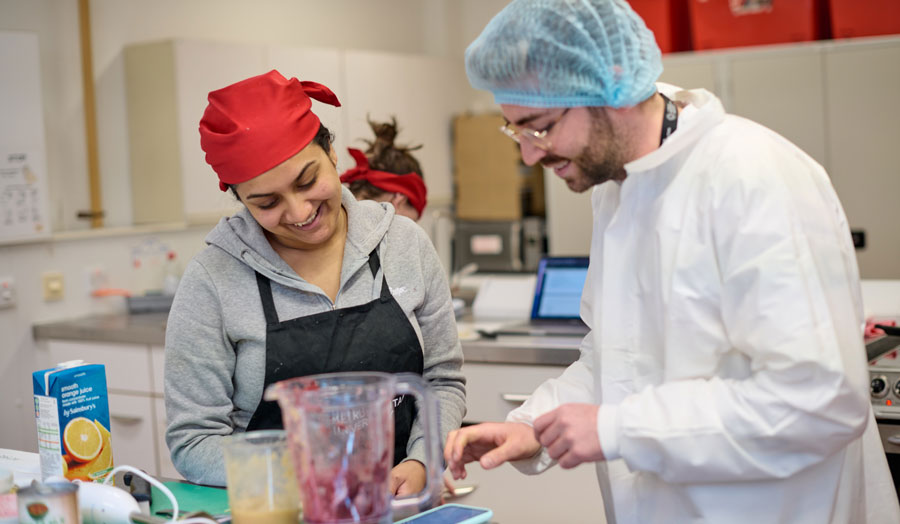
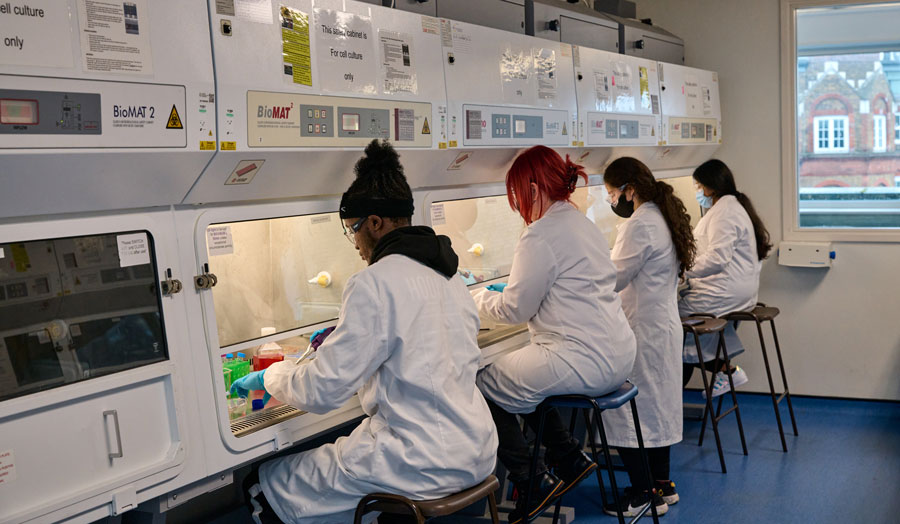
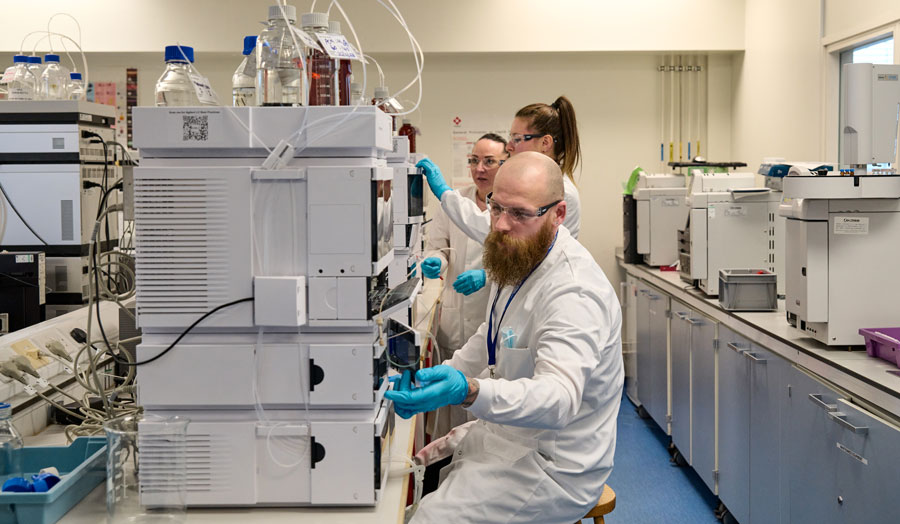
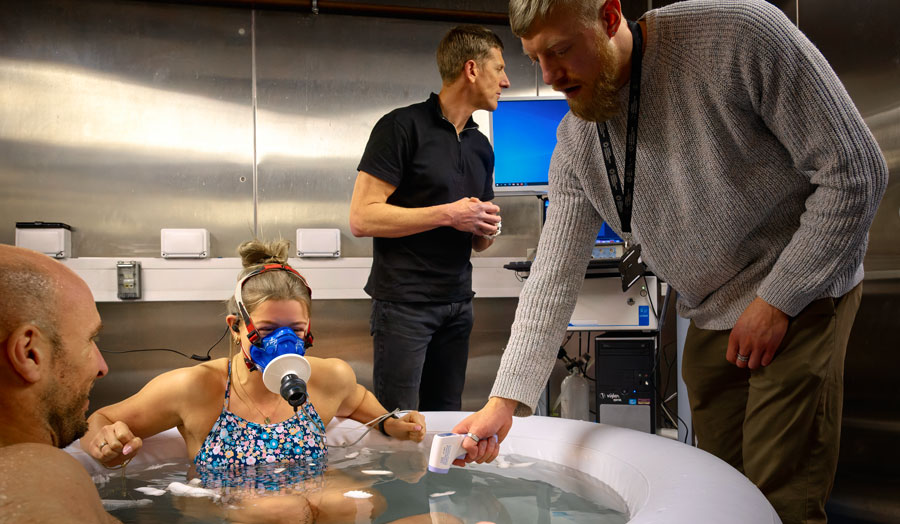
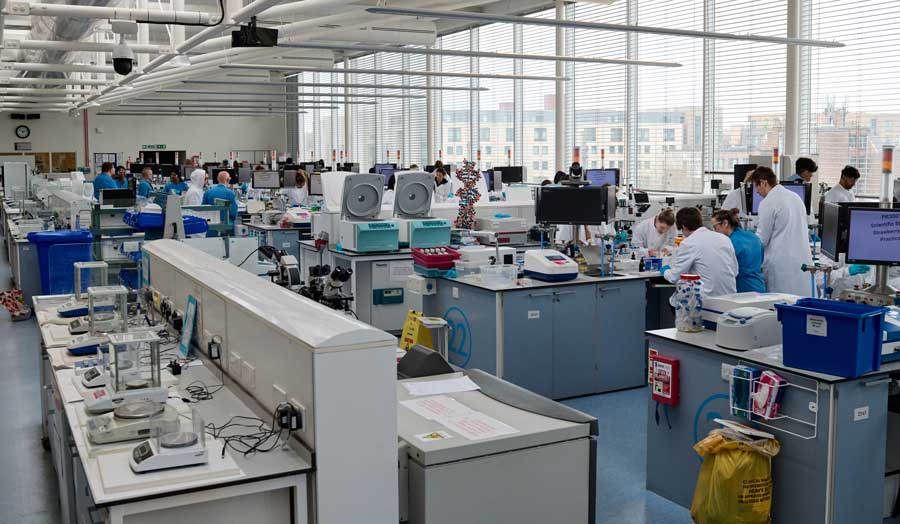
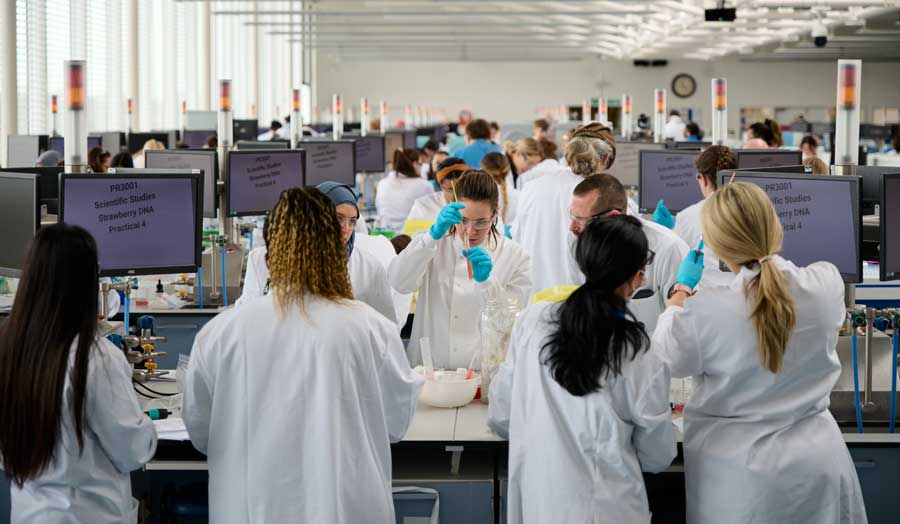
.jpg)
